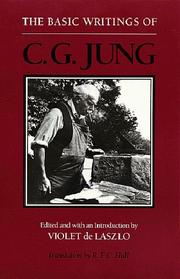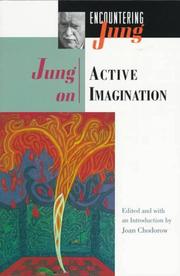| Listing 1 - 3 of 3 |
Sort by
|
Book
ISBN: 9077070664 9789077070666 9028938281 9789028938281 Year: 2006 Publisher: Kampen : Klement,
Abstract | Keywords | Export | Availability | Bookmark
 Loading...
Loading...Choose an application
- Reference Manager
- EndNote
- RefWorks (Direct export to RefWorks)
Philosophical anthropology --- Metaphysics --- Literature --- Human sacrifice in the Bible --- Mensenoffer in de Bijbel --- Sacrifice humain dans la Bible --- Accountability --- Animus donandi --- Dispositions à titre gratuit --- Donations --- Donations entre vifs --- Dons --- Generositeit --- Generosity --- Geven --- Giften --- Gifts --- Giving --- Générosité --- Intention libéralei651 --- Libéralités --- Libéralités (Droit civil) --- Libéralités entre vifs --- Moral responsibility --- Obligation --- Presents --- Responsabilité --- Responsibility --- Schenkingen --- Verantwoordelijkheid --- Vrijgevigheid --- #GGSB: Filosofie --- Obligation morale --- Responsabilité (Morale) --- Responsabilité (Philosophie) --- Responsabilité -- Aspect moral --- Responsabilité -- Philosophie --- Responsabilité morale --- Bible. O.T. Genesis XXII, 1-8 --- Philosophy --- Filosofie

ISBN: 0691019029 0691229783 Year: 2008 Publisher: Princeton, N.J. : Recording for the Blind & Dyslexic,
Abstract | Keywords | Export | Availability | Bookmark
 Loading...
Loading...Choose an application
- Reference Manager
- EndNote
- RefWorks (Direct export to RefWorks)
In exploring the manifestations of human spiritual experience both in the imaginative activities of the individual and in the formation of mythologies and of religious symbolism in various cultures, C.G. Jung laid the groundwork for a psychology of the spirit. The excerpts here illuminate the concept of the unconscious, the central pillar of his work, and display ample evidence of the spontaneous spiritual and religious activities of the human mind. This compact volume will serve as an ideal introduction to Jung's basic concepts. Part I of this book, "On the Nature and Functioning of the Psyche," contains material from four works: "Symbols of Transformation," "On the Nature of the Psyche," "The Relations between the Ego and the Unconscious," and "Psychological Types." Also included in Part I are "Archetypes of the Collective Unconscious" and "Psychological Aspects of the Mother Archetype." Part II, "On Pathology and Therapy," includes "On the Nature of Dreams," "On the Pathogenesis of Schizophrenia," and selections from "Psychology of the Transference." In Part III appear "Introduction to the Religious and Psychological Problems of Alchemy" and two sections of "Psychology and Religion." Part IV, called "On Human Development," consists of the essay "Marriage as a Psychological Relationship."--Publisher description
Jungian psychology. --- Psychoanalysis. --- Aurora consurgens. --- Cherchez la jemme. --- Compensation. --- Corpus Hermeticum. --- Inferior Function. --- Interpretation of Dreams. --- Psychological Types. --- Psychology and Alchemy. --- Rosarium philosophorum. --- Sensation. --- Symbols of Transformation. --- The Future of an Illusion. --- Yearbook. --- Zarathustra. --- adhista. --- aesthetic sensation attitude. --- alcheringa. --- amour propre. --- anima. --- animus. --- apperception. --- archetypes. --- automatisms. --- collective unconscious. --- constructive. --- cordon sanitaire. --- discriminating. --- emptiness. --- ex hypothesi. --- facultas praeformandi. --- feeling-value. --- hieros gamos. --- historical. --- immortality. --- intuition. --- invisibility. --- manifold meaning. --- masculine. --- mater natura. --- metapsychic. --- orientation. --- participation mystique. --- philosophy. --- psychological. --- psychologically true. --- revenants. --- scintilla. --- sine qua non. --- symbols of individuation. --- symptosis. --- thinking in words. --- unconscious. --- unknown psychic.

ISBN: 0691015767 1322882010 1400866855 Year: 2015 Publisher: Princeton, NJ : Princeton University Press,
Abstract | Keywords | Export | Availability | Bookmark
 Loading...
Loading...Choose an application
- Reference Manager
- EndNote
- RefWorks (Direct export to RefWorks)
All the creative art psychotherapies (art, dance, music, drama, poetry) can trace their roots to C. G. Jung's early work on active imagination. Joan Chodorow here offers a collection of Jung's writings on active imagination, gathered together for the first time. Jung developed this concept between the years 1913 and 1916, following his break with Freud. During this time, he was disoriented and experienced intense inner turmoil --he suffered from lethargy and fears, and his moods threatened to overwhelm him. Jung searched for a method to heal himself from within, and finally decided to engage with the impulses and images of his unconscious. It was through the rediscovery of the symbolic play of his childhood that Jung was able to reconnect with his creative spirit. In a 1925 seminar and again in his memoirs, he tells the remarkable story of his experiments during this time that led to his self-healing. Jung learned to develop an ongoing relationship with his lively creative spirit through the power of imagination and fantasies. He termed this therapeutic method "active imagination." This method is based on the natural healing function of the imagination, and its many expressions. Chodorow clearly presents the texts, and sets them in the proper context. She also interweaves her discussion of Jung's writings and ideas with contributions from Jungian authors and artists.
Jungian psychology. --- Psychoanalysis. --- Subconsciousness. --- Active imagination. --- Jung, C. G. --- Active imagination. --- Adlerian. --- Allusion. --- Analogy. --- Analytical psychology. --- Anima and animus. --- Anthropomorphism. --- Antithesis. --- Apotropaic magic. --- Archetype. --- Art therapy. --- Astrology. --- Author. --- Career. --- Carl Jung. --- Causality. --- Certainty. --- Cherry picking. --- Circumference. --- Clockwise. --- Cloister. --- Co-operation (evolution). --- Consciousness. --- Critical period. --- Criticism. --- Dialectic. --- Direct experience. --- Disgust. --- Dissociation (psychology). --- Dream interpretation. --- Explanation. --- Extraversion and introversion. --- Feeling. --- Free association (psychology). --- Hallucination. --- Humility. --- Ibid. --- Imagination. --- Indication (medicine). --- Individuation. --- Inner Experience. --- Inner critic. --- Introspection. --- Invention. --- Lao-Tzu. --- Lecture. --- Libido. --- Literature. --- Loneliness. --- Mental image. --- Mood (psychology). --- Multitude. --- Mysterium Coniunctionis. --- Neglect. --- Neurosis. --- Nihilism. --- Oppression. --- Parapsychology. --- Personality. --- Phenomenon. --- Philosophy. --- Potentiality and actuality. --- Prejudice. --- Prima materia. --- Principle. --- Probability. --- Psyche (psychology). --- Psychoanalysis. --- Psychologist. --- Psychology and Alchemy. --- Psychology. --- Psychotherapy. --- Puberty. --- Rapprochement. --- Rationality. --- Reality. --- Reincarnation. --- Result. --- Sanskrit. --- Self-confidence. --- Self-deception. --- Self-knowledge (psychology). --- Sigmund Freud. --- Singing. --- Suffering. --- Suggestion. --- Suicide. --- Symptom. --- Temperament. --- The Erotic. --- The Interpretation of Dreams. --- The Secret of the Golden Flower. --- Therapeutic effect. --- Thought. --- Toni Wolff. --- Transference. --- Two Essays on Analytical Psychology. --- Uncertainty. --- Wreath. --- Writing.
| Listing 1 - 3 of 3 |
Sort by
|

 Search
Search Feedback
Feedback About UniCat
About UniCat  Help
Help News
News